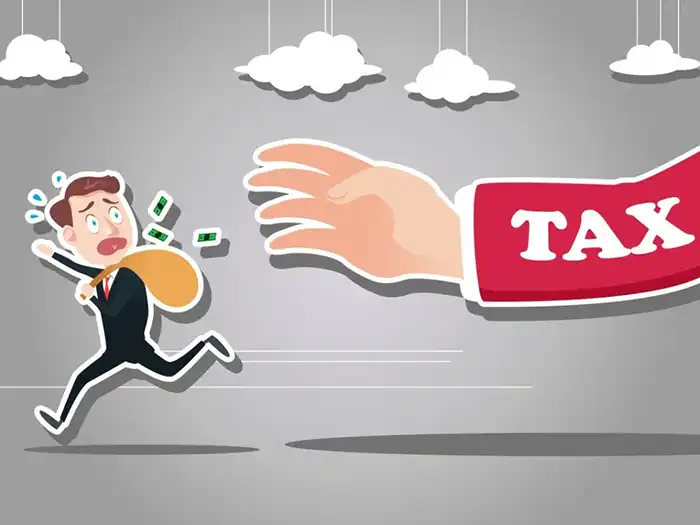A Comprehensive Guide to Company Pension Schemes: What You Need to Know

If you’re a UK company and you employ staff (or even just pay yourself a salary), you may have to offer a workplace pension scheme, also known as a company pension scheme. This is a legal obligation as a UK employer. You may have received a letter from the Pension Regulator asking you to enrol your eligible employees.
Who qualifies for auto-enrolment?
As an employer, you must enrol staff in a workplace pension scheme if;
- They’re aged between 22 and State Pension age (currently 68 for anyone born after April 1978)
- Your employee is earning at least £10,000 per year
- and working in the UK.
How much does the company contribute?
Pension contributions are paid by both the employer and the employee.
- The employee will contribute 5% of their qualifying earnings and;
- The company will contribute a minimum of 3%
There are two ways of calculating qualifying earnings. Either total earnings which are nice and easy, or pensionable earnings, which are any earnings over £520, this therefore works out slightly cheaper. Which way you chose is at the employers’ discretion. Earnings include their salary, wages, overtime, and bonuses.
How do I set up a company pension scheme?
You will need to sign up with a registered pension provider. At Jacksons Accountants, we team up with various providers to ensure that you get the best out of them. Contact us here.
When do I need to enrol people into a pension scheme?
If this is the first time you’ve needed a pension scheme, you will have to enrol staff for the first time as soon as you start employing them. This is known as your duties start date.
You will need to enrol employees, assuming they meet the above criteria.
Every 3 years, you will also need to re-assess staff and put them back into the pension (even if they opted out).
Do I need to tell my employees that they’re being opted in?
Yes, you have 6 weeks from enrolling or re-enrolling employees to write to them. Most pension providers offer templates and send letters automatically for you.
Can my employees opt out of the pension scheme?
Yes, they can opt-out if they don’t want to participate. However, as an employer, you cannot encourage or pressure them to do so.
Why do people need a pension?
There are several reasons why it’s important to save for pensions in the UK:
- State Pension may not be enough: The State Pension is a basic retirement income provided by the UK government, but it may not be enough to maintain the standard of living you want in retirement. Saving into a pension can help you supplement your State Pension and provide you with a more comfortable retirement.
- Longer life expectancy: People in the UK are living longer than ever before, which means that we need to save more for retirement to cover the additional years we’re likely to spend in retirement.
- Workplace pensions are becoming less generous: In the past, many employers offered generous final salary pensions that provided a guaranteed income in retirement. However, these types of pensions are becoming less common, and many employers are now offering defined contribution pensions, where the final pension amount is based on how much you and your employer have contributed and the investment returns earned.
- Inflation: Inflation can erode the value of your retirement savings over time. By saving into a pension, you can benefit from compounding returns and potentially offset the impact of inflation on your retirement income.
- Financial independence: Saving for a pension can provide you with financial independence in retirement, allowing you to pursue your hobbies, travel, and enjoy your golden years without having to rely on others for financial support.
Overall, saving for a pension is a key part of financial planning, and can help you achieve a comfortable and secure retirement.
What other benefits can I provide my employees?
A UK company can provide a range of benefits to its employees, depending on its size, industry, and budget. Here are some common company benefits that UK employers may offer:
- Private medical insurance: Some employers may offer private medical insurance as part of their employee benefits package, which can help employees access medical treatment more quickly and avoid lengthy NHS waiting lists.
- Life insurance: Employers may offer life insurance cover to their employees, which can provide financial support to their loved ones in the event of their death.
- Income protection insurance: This type of insurance can provide a regular income to employees who are unable to work due to illness or injury.
- Flexible working: Many employers now offer flexible working arrangements, such as working from home or flexible hours, to help employees achieve a better work-life balance.
- Childcare vouchers: Employers may offer childcare vouchers, which can help parents cover the cost of childcare.
- Cycle to work scheme: This scheme allows employees to purchase a bike and cycling accessories tax-free, making it a more affordable way to travel to work.
- Employee assistance programme (EAP): An EAP can provide employees with confidential counselling and support services to help them deal with personal or work-related issues.
- Learning and development opportunities: Employers may offer training and development opportunities to help employees develop new skills and progress in their careers.
- Employee discounts: Some employers may offer discounts on products or services to their employees, such as gym memberships or retail vouchers.
These are just a few examples of the types of benefits that UK employers may offer. The specific benefits offered will depend on the employer and the needs of their workforce.
Pension options for company directors
Directors in the UK have several options when it comes to pension schemes, depending on their status as a company director, their company structure, and their personal circumstances. Here are some options:
- Personal pension: Directors who are self-employed or have their own limited company can set up a personal pension scheme. This type of pension is typically managed by a pension provider, and contributions are made by the director or the company on their behalf. Personal pensions can offer flexibility in terms of investment options and contribution levels.
- Small self-administered scheme (SSAS): A SSAS is a type of pension scheme that is set up and administered by the directors of a small company, usually with fewer than 12 members. SSASs can offer more control over investment decisions and can be used to invest in a wider range of assets than personal pensions. However, they can be more complex and expensive to set up and manage.
- Self-Invested Personal Pension (SIPP): A SIPP is a type of personal pension that allows individuals to make their own investment decisions. SIPPs can offer greater flexibility in terms of investment options, but can be more complex and expensive to set up and manage.
- Company pension scheme: If a company has multiple directors or employees, it may be possible to set up a company pension scheme. This can provide a tax-efficient way for directors to save for retirement, as contributions made by the company are tax-deductible. Company pension schemes can be defined as contribution schemes or defined benefit schemes.
It’s important for directors to seek professional advice when choosing a pension scheme, as the options can be complex and will depend on their individual circumstances. Directors may also need to consider their obligations under auto-enrolment legislation, which requires employers to automatically enrol eligible employees in a pension scheme.
Conclusion
As you can see, there are many legal requirements when employing people and opting them into the company pension scheme. Moreover, there are other ways to attract top talent with a wide range of company benefits.
It’s important to note that pensions can be complex, and the rules and regulations surrounding them can change over time. It’s always a good idea to seek professional advice if you’re unsure about any aspect of your company pension or retirement planning. Get in touch today for a free no-obligation consultation.
Looking for an Accountant?
Contact us for accounting support! Simply fill out the form below, and our team of qualified accountants will be in touch with you soon.

















